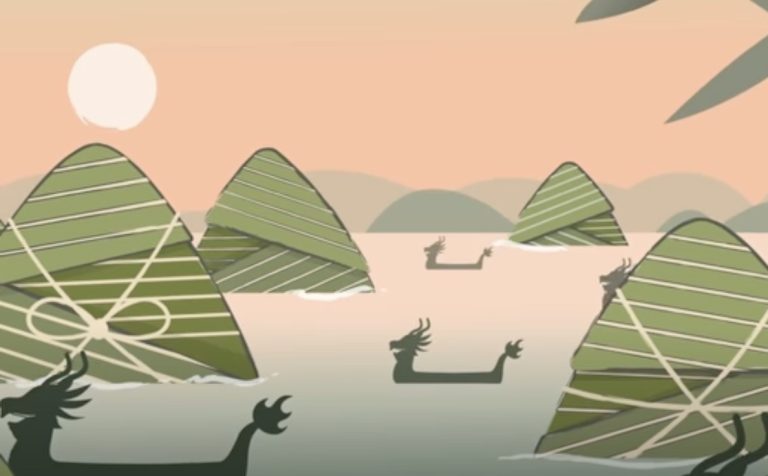One of the major traditional Chinese events of the year still commonly celebrated in modern times is Duanwu (端午節), the Dragon Boat Festival.
Falling on every fifth day of the fifth lunar month, Duanwu in 2023 comes on June 22 in the Western calendar, just one day after the summer solstice. The solstice is also a significant event in the Chinese system of 24 solar terms, where it marks the height (or literally “arrival”) of summer — xiazhi (夏至).
Duan Wu celebrates the sacrifice of Qu Yuan, a righteous official who lived in the ancient Chinese kingdom of Chu. His advice to the king went ignored, and as a result, Qu was exiled to a remote area. The kingdom suffered diplomatic and military defeats, and decades later, its capital was sacked.
- Understanding the Traditional Chinese Calendar in 2023
- Qu Yuan, the Tragic Patriot Behind the Dragon Boat Festival
- Qingming: Pure Brightness to Honor the Deceased
Knowing that Chu was finished, Qu Yuan drowned himself in the Miluo river as a final act of protest. Though disrespected by the unwise king and his self-serving ministers, the common people of Chu lamented the patriot’s death.
Legend has it that immediately upon hearing of Qu Yuan’s demise, they set out in fast longboats in heavy rain and lightening to retrieve his body for a proper burial. In hopes that fish would not devour his remains, they threw small packages of rice wrapped in bamboo leaves into the Miluo to serve as bait for the creatures to eat instead.
Success
You are now signed up for our newsletter
Success
Check your email to complete sign up
Fantastically, days after Qu Yuan’s death, his elder sister dreamt that he was waiting for her in their hometown. The next day, she ventured to the bank of the Yangtze River near the Three Gorges, where a huge divine fish swam up to her. It had brought the body of her brother, which now floated to the shore and had not decayed at all. A grand funeral was held, and the minister finally put to rest.
From history to tradition
Because it is believed that Qu Yuan died on the 5th day of the 5th lunar month in the year 278 B.C., that day (Duanwu) became the occasion to commemorate his sacrifice.
Apart from being an official, Qu Yuan is also the first named poet in Chinese history. His works form an important representative of the “Chu verse” (楚辭) style, which is quite different from later types of Chinese poetry but very emotionally expressive. Qu Yuan used his long verses to describe the political malaise of his country, as well as to engage in existential and spiritual explorations.
The longboats that the Chu people rode in search of Qu Yuan became the racing dragon boats, and the offerings they made to the fish of the Miluo became zongzi (粽子), the glutinous rice meals traditionally eaten on Duan Wu.
A variety of zongzi are popular across China and among overseas Chinese. They typically consist of a fistful of gluey rice wrapped in a triangular shape using bamboo leaves and held together with string. There is usually a filling of vegetable, meat, or even fruit.
Common types of zongzi include the glutinous rice chicken (糯米雞) variety, which is ingredientially related to the Cantonese “lo mai gai” dim sum item. A somewhat atypical zongzi that does not feature the common sticky rice is the lye water zongzi (鹼水粽), which often includes a red bean paste or date filling. Some recipes also call for egg yolk as the central ingredient.













